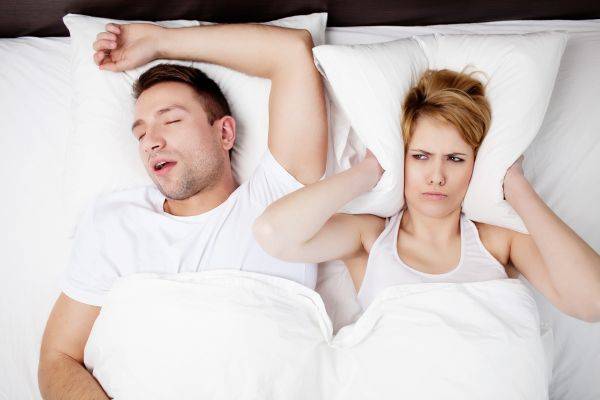Treating Sleep Apnea With Oral Appliance Therapy

It may be surprising to some, but did you know your dentist can actually help with sleep apnea? The dentist is able to prescribe and fit you for a special oral appliance that can assist with proper airflow throughout the night. Here is what you should know about these devices.
What is sleep apnea?
Obstructive sleep apnea is when you stop breathing for at least 10 seconds in your sleep on a regular basis. The severity of sleep apnea depends on how often you stop breathing in the duration of an hour. Snoring can be a sign of partial sleep apnea; so are gasps and chokes when breathing is resumed. The cessation of breath is due to the muscles in the throat and mouth relaxing to the point where they restrict the airway. Along with constant fatigue from a lack of proper sleep, sleep apnea can lead to long-term complications such as cardiac issues and strokes.
The oral appliances
The purpose of oral appliances is to help prevent sleep apnea through placement in the mouth. Thanks to mandibular advancement devices and tongue retaining mouthpieces, oral appliances are a step down from having to use advanced equipment to treat sleep apnea.
Mandibular advancement device
Similar to orthodontic retainers, the mandibular advancement device (MAD) fits over the lower and upper teeth and is connected by hinges. The jaw and tongue are moved and kept forward by the MAD so that during the night the airway and airflow are never restricted.
Tongue retaining mouthpiece
These are built similar to the MADs but are kept in place via suction from a compartment around the tongue that keeps it forward. With the tongue retaining mouthpiece, the jaw is not kept forward for those who are unable to have their jaw do so.
Possible complications
The oral appliances used to treat sleep apnea do have some drawbacks and possible complications that need to be watched for and discussed with your dentist before using the appliance. They include the following:
- The appliances lead to increased amounts of saliva in the mouth, requiring frequent swallowing.
- Damage to teeth and soft tissues in the mouth and jaw muscles and joints is possible.
- The appliance can cause discomfort, especially in the morning. This may result in people not wanting to use the device as often as they should.
- The sleep apnea may be too severe for an oral appliance to be effective.
Conclusion
Oral appliances require a proper fitting in order to be effective for sleep apnea treatment, but they are simple and effective devices. Frequent visits with your dentist for any fitting changes as well as monitoring the effectiveness of your oral appliance can help you find the right fit to aid you in your sleep therapy. You do not need to suffer through sleep apnea affects when your dentist can help you with a simple device.
Are you considering getting an oral appliance for sleep apnea in the Huntersville area? Get more information at https://lakenormandentistry.com.
Check out what others are saying about our dental services on Yelp: Do I Have Sleep Apnea.
Recent Posts
If you are an individual who snores or wakes up gasping for air, a significant other may have suggested visiting a dental or medical provider to investigate the possibility of sleep apnea. A proper diagnosis is crucial for starting the right treatment. There are two main types of sleep apnea that have similar symptoms, but…
Although sleep apnea is more commonly found in adults, in rare cases, it can also occur in children. It is normal to see parents crash from exhaustion, but this serious medical condition may be the reason your child wakes up repeatedly during the night. In this article, you will find out about sleep apnea in…
Preventative dental care is critical. For most people, the word "dental appointment" brings anxiety and dread. There are many reasons why people feel this way like how dentists have been historically portrayed in the media or past bad experiences.The reality is that a visit to the dentist can save a person a lot of pain,…
For cavities, a dental inlay may be a good option to treat the decayed tooth. Many people probably think of fillings when it comes to repairing cavities. While this treatment can be effective, it is worth considering inlays as well. Both have benefits and drawbacks. Your dentist can explain the process of each treatment to…


